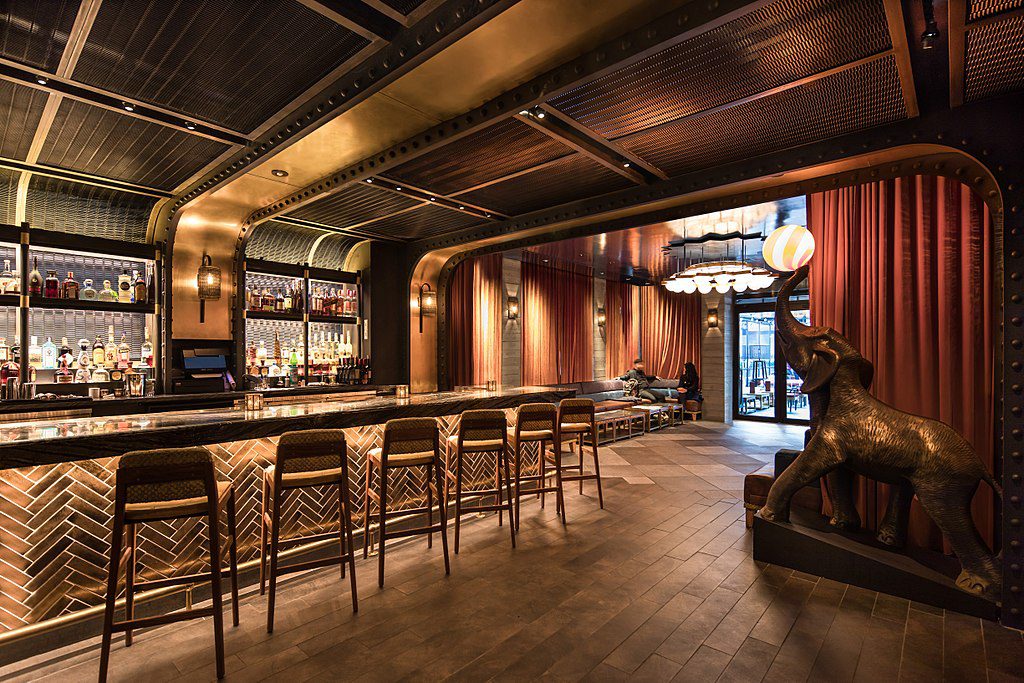Skift Take
Don't look to the past in how to rebuild the travel industry's post-pandemic future. Look at everything from design to diversity to structuring events.
A pandemic is a terrible thing to waste when it comes to ushering in new business strategy, according to leading voices across the travel and design sphere.
Pent-up travel demand continues to grow with each passing month of the pandemic. But while optimistic news on the vaccine front could accelerate the travel industry’s recovery, industry experts say we shouldn’t be so quick to bounce back to the way things were.
Now is the time to rebuild a travel economy that takes into account the wellness, health, and technology principles debated for years but largely ignored until a global health crisis kept everyone at home. From design to diversity and event structures, travel leaders weighed in Thursday at Skift Design the Future event.
The full video of the three-hour event is embedded below:
Here are some of the key takeaways:
- Diversity means harnessing the power of disruption. Differences are disruptive, and that’s the key to innovation — disrupting the status quo or predictable, said Walton Isaacson CEO Aaron Walton. The travel industry, like the entire world, has had a major wake-up call this year when it comes to diversity, but Walton said the industry needs to see diversity is more than just the look of a company: “The eye should be able to be see diversity, but what’s probably just as important is how it sounds,” he added. “The sound of diversity is the sound of the status quo smashing into a million pieces and someone rearranging those in ways nobody thought about before.”
- Neuroaesthetics need to play a bigger post-pandemic role in building design, especially in the travel sphere. This field focuses on the way spaces make a human feel or behave. The travel world has many opportunities, from hotel lobbies to cavernous airports, where more mindful design could have a greater impact on human behavior, according to Suchi Reddy, founding principal at Reddymade Architecture & Design.
- Designing for zero-gravity travel in outer space encompass the tenets of safety, confidence, comfort, and control. That should just as easily be applied to confined spaces traveling closer to Earth like an airplane, said Mike Mahony, director of program management at Teague.
- Stop looking for silver linings. Wellbeing experts see “gold linings” when it comes to the pandemic: “In many ways, we got to a place where it was spinning out of control. Being forced to stop was uncomfortable but really necessary,” said Kyricos & Associates CEO Mia Kyricos. “The shift that has happened is our wellness … The concert that takes place between our minds, body, and spirit was a ‘nice to have’ before, and now it’s a ‘need to have.’”
- The growth in the extended stay hotel sector pushed hotel companies like Accor to reimagine their properties to be less transactional (i.e. a lobby focused on a check-in desk) and more on ushering in an era for live, work, and having fun — even for shorter stays — according to Damien Perrot, Accor’s global SVP of design.
- Diversity can give a company a competitive advantage, but the next generation of talent will likely spur a much more organic call for messages of inclusivity in branding and marketing: “The next generation of creative leaders will come from marginalized populations who won’t have as much of a problem with messages of inclusivity because they would see it as a responsibility,” said Walton.
- The travel industry shouldn’t critique the push to hybrid meetings with in-person and remote technology components for losing their personal touches. Even pre-pandemic in-person events were heavily influenced by technology, said Leilani Franklin-Apted, chief design officer at Unsettled.
- There may have been technology components to in-person meetings of the past, but maintaining the same level of human connection and experiences will be vital in building a successful hybrid meeting, added Markus Schreyer, senior vice president at Design Hotels.
- Social distancing is temporary, and community-building will be back in due time. The design world can assist in measures like mood lighting (think the sunrise tones on newer passenger jet interiors) and cozy bars and game areas like those seen at a Marriott Moxy hotel.
- Amenities aren’t enough. While companies’ heads and hearts may be in the right place by offering products and services aimed at promoting employee health and wellness, leaders should also be mindful of actual wellness practices in the workplace and how people operate throughout the day, Kyricos said.
Skift would like to thank Accor for its support and sponsorship of Skift’s Design The Future event.
Have a confidential tip for Skift? Get in touch
Tags: accor, coronavirus, coronavirus recovery, skift idea awards
Photo credit: While the pandemic will spark many lasting design legacies, community spaces like the hotel bar will still be important post-crisis, according to experts at Skift Design the Future. Ruozhu Tang / Wikimedia
